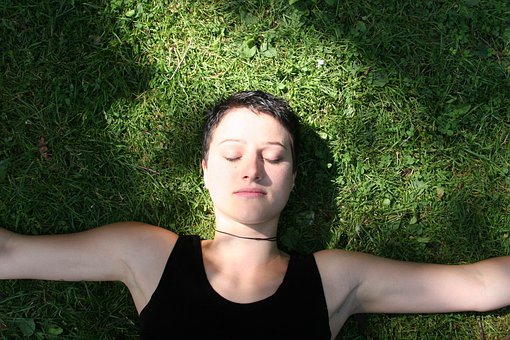You’ve probably heard of mindfulness, since it’s a popular topic nowadays. But do you know what it actually entails?
Mindfulness is the practice of being present and aware of your surroundings without being too reactive.
Mindfulness has many benefits, including reducing stress, improving mood, helping to sleep better, and generally benefiting physical and mental health.
It’s not easy to live in the 21st century. There’s always something that we need to prepare for or anticipate. Our lives are so well-documented that it’s easy to get lost in the past.
Anxiety, stress, and unhappiness have become the new norm given the fast pace and hectic schedules most of us keep.
If you find yourself stuck in the past or worrying about the future, you may not be aware that this can leave you feeling exhausted and disconnected from yourself.
Many people have claimed that the cure for this condition is conscious awareness and staying in the present moment. Living in the present moment is the solution to a problem you may not have known you had.
Mindfulness is a way of life that involves being aware of your thoughts and feelings in the present moment. It is about living in the moment and being present in your life. You can be mindful of your thoughts, feelings, and emotions, as well as your physical sensations. You can also be mindful of your surroundings, including the people and the environment around you. Mindful living is all about making mindfulness a part of your daily life. Mindfulness is a way of life that helps you live in the moment and be present in your life.
Balancing the Past, Present, and Future
Reflecting on the past and looking ahead to the future can be beneficial. What would happen if we never reflected on our past or looked ahead to the future? We would not be in a good place if either of these things happened.
It’s important to think about the past and the future, but we often get caught up in thinking about them too much.
Mindfulness and a key factor in living a healthy life is to balance your thoughts of the past, the present, and the future.
If we think about any of the three areas too much, it can have negative effects on our lives. However, if we keep the three areas in balance, it will help us to be happy and healthy people.
It’s hard to say what the perfect balance is, but you’ll know you found it when you worry less, feel less stress regularly, and find yourself living mostly in the present.
1. Set aside time for daily mindfulness
Practicing mindfulness regularly can help change the way stress is processed in the brain, which can improve emotional regulation and focus.
Even if you only have a few minutes to spare, mindfulness practices can be beneficial. Mindfulness doesn’t have to be a long, formal process. You can be mindful in short bursts throughout the day, even if you only have a few minutes.
There are many different ways to practice mindfulness, including meditation, guided visualization, and breathing exercises. If you’re new to mindfulness, try out different techniques to see what works best for you.
2. Make everyday tasks mindful
You can be mindful of everyday tasks by being aware of your thoughts and emotions during the task.
When you are performing a task during the day, it is important to be present and aware of your surroundings. Take the time to think about what you see, hear, taste, smell, and feel. This will help you to be more present and focused on the task at hand.
3. Try mindful movement
In addition to sitting quietly to practice mindfulness, you can also move mindfully to better suit your needs.
Slow, flowing movements that are often paired with breathing exercises typically make up mindful movement.
There are many ways to be mindful, including yoga and tai chi, as well as focusing on your senses during any type of movement.
I love taking walks and being mindful of my surroundings and the sound my feet make as they walk on the ground.
4. Be present in the moment
Life can be busy and fast-paced, and it’s easy to forget to appreciate the moment. Try to take a step back and enjoy life’s simple pleasures.
You can be more present in the moment by slowing down and paying attention to what is happening in the present.
5. Practice acceptance
An important part of mindfulness is learning to accept yourself, your thoughts and feelings, and your life.
The Greater Good Science Center states that mindful acceptance is the act of being aware of your thoughts and feelings without passing judgement on them or feeling like there is a correct or incorrect way to think or feel.
Try not to judge your thoughts and feelings, or compare them to how other people feel. Instead, take a deep breath and focus on just accepting that this is how you feel and what you think.
In order to be truly accepting, you must be okay with the fact that not everything is perfect. This can be a difficult concept to come to terms with, but it is a essential part of being content.
6. Get out in nature
The benefits of spending time in nature have been well-documented. Studies show that being in nature can improve your mood and reduce stress levels. Furthermore, time spent in nature can also help you to be more mindful and appreciate the world around you.
Make an effort to spend time in nature as frequently as you can. It doesn’t matter if you live in a city or not, take advantage of the nearby green spaces.
Nature is where I feel most happy and content, it improves my wellbeing and mood.
7. Practice self compassion
There is evidence that self-compassion has many benefits, including: happiness, less anxiety, better health, a deeper sense of wellbeing, and more resilience.
When you are mindful, you are aware of your thoughts and feelings without judging them. This allows you to connect with your compassion, which is the ability to feel concern for and kindness toward yourself and others.
Treating yourself with self-compassion is like treating someone you love with kindness, gentleness, encouragement, and patience.
8. Practice gratitude
Numerous studies have found that people who regularly practice gratitude are happier and have a better overall sense of wellbeing.
Grateful people have more positive emotions, enjoy good experiences more, have better health, cope with adversity better, and have stronger relationships, according to Harvard Medical School.
It is important to take the time to be grateful for the positive things in your life, and to really pay attention to them.
I find it helpful to write down three things I am grateful for each day before I go to bed. I think it helps to shift my mindset to thinking more positively.
9. Make time for you
Try to find some time each day to do something for yourself or something you enjoy.
Self-care is taking care of yourself both physically and mentally. This can be done by eating well, doing things you enjoy, exercising, and practicing good hygiene.
10. Write in a journal / “Morning pages”
You can start your day off on the right foot by writing in your journal. A specific exercise endorsed by author Julia Cameron called “Morning Pages” can help you set a mindful tone for the day.
Here is a guide to using your journal to help you have a more mindful day.
Before you start your busy day, take a few minutes to write in your journal.
You can do a new page each day and simply write however much you feel like writing, or you can try Cameron’s Morning Pages exercise:
They are not even “writing.” They are about anything and everything that crosses your mind—and they are for your eyes only. Morning Pages provoke, clarify, comfort, cajole, prioritize and purge. Do not over-think Morning Pages: just put three pages of anything on the paper…and then do three more pages tomorrow.” Every morning, you should spend three pages writing whatever comes to mind in a stream of consciousness. This is not high art, and it doesn’t have to be perfect writing. Just get three pages of anything down on paper, and then do three more pages tomorrow. Morning pages can help you sort out your thoughts, make priorities, and get rid of things that are weighing you down.
They are making lists of anything and everything that crosses their minds, and these lists are only for them to see.
If you spend a few minutes writing down the thoughts that are going through your head or logging any interesting dreams, you can clear your head and start the day in a more mindful state.
11. Visualize your daily goals
It can be very helpful to visualize your goals in order to make them more likely to happen, and it can also help you be more aware of what you’re doing on a day-to-day basis.
After you have decided on your daily goals, take a few minutes to imagine achieving each one.
If you can see yourself achieving your goals today, then they will seem more attainable and real. The more detail you can include in your visualization, the more real it will feel.
When you’ve imagined yourself completing each of your daily goals, move on to the next goal.
Visualizing your goals can help improve your focus, lower your stress, and improve your performance. It can also help you be more prepared and motivated to accomplish everything on your list.
12. Take a mindful nature walk
Exploiting the natural scenery surrounding us is a beneficial way of driving us to be more aware.
Make your next walk a mindful nature walk, whether it’s a quick trip around the block or a lengthy stroll through a pretty, scenic spot.
It’s easy to be present during any walk by engaging all your senses and being aware of what is happening both around and within you.
Intentionally focus your awareness on your surroundings: the sensation of your feet hitting the ground with each step, the sights and sounds around you, the feeling of each inhale and exhale. Be present in each moment.
This exercise helps you connect to your authentic self and your environment, and improves your awareness of the beauty around you.
In addition to the known benefits of walking regularly—lowered stress, better heart health, and improved mood—you can also enjoy increased benefits.
13. Conduct a mindful review of your day
At the end of your day, try this exercise to help you stay mindful and not let things slip.
At the end of your day, take a few minutes to reflect on what you did and how your day went.
How did you feel when you started your mindfulness exercise at the beginning of the day?
Consider your day ahead, noting any mindful moments or memorable events that may occur. Be aware of your mood as you go about your daily routine.
Conclusion
If you find it difficult to use the techniques or implement the tools and tricks, or if you have a diagnosed mental disorder such as depression, anxiety, or obsessive-compulsive disorder, you may need present moment psychotherapy.
With present moment psychotherapy, the focus is on being aware of the present moment, rather than on the past or future.
READ MORE: 7 Habits That Constantly Drain Your Energy (And How To Fix It)









